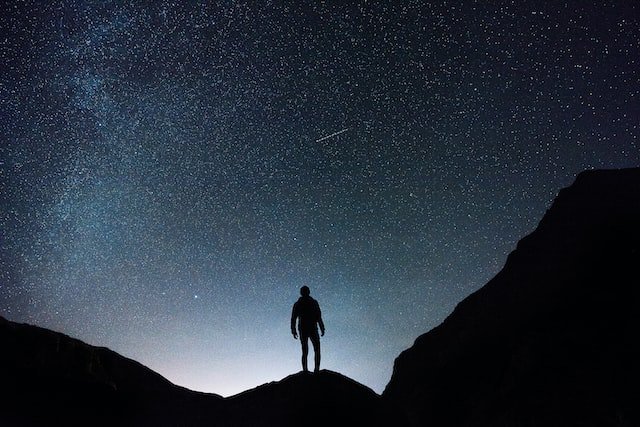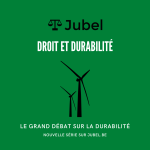Yana Yakushina est avocate, chercheuse doctorale et dark-sky protection educator. Dans le texte anglais ci-dessous, elle aborde brièvement l'impact de la pollution lumineuse en mettant l'accent sur l'impact écologique. Elle évoque également les différentes initiatives autour de la lutte contre la pollution lumineuse et le cadre réglementaire existant ou en cours d'élaboration, tant au niveau international que national.
Reduce light pollution and protect more than the stars
During the 20th century, people perceived lighting as a symbol of civilizational development and placed lighting installations anywhere to provide comfort, forgetting about the important role of the dark skies in shaping society throughout history[1]. The latter has led to a major increase in night-time illumination across the globe. Light pollution is a fast-growing environmental problem that is caused by increased, unwanted and misdirect artificial light at night (ALAN). During the past decade, light pollution levels increased dramatically by 9.6%, depending on the region[2].
Light pollution is a fast-growing environmental problem that is caused by increased, unwanted and misdirect artificial light at night
Ecological impact of light pollution
Light pollution impacts various areas from the disappearance of the dark skies and creating barriers for astronomical activities to creating adverse impacts on biodiversity and ecosystems, which further contribute to biodiversity loss, habitat fragmentation and climate change. As for ecological impacts, research shows[3]that increased nighttime illumination affects migratory and sleeping behaviour, breeding patterns and predator-prey relationships of different species. Beyond that, light pollution is a serious stressor for human health. A recent literature review[4]on the effects of ALAN on human health has indicated that light pollution can lead to various illnesses and diseases, such as hormone-dependent cancer, obesity, and depression, as well as can cause undesirable behaviours, including suicidal behaviour. These, however, are only a few examples of the negative effects of ALAN. The research findings did not go unnoticed and resulted in a recognition of light pollution is a concern.
Several movements were initiated to raise awareness of light pollution and address its impacts. One of the major international organizations founded for these purposes is the International Dark-Sky Association (IDA)
Raising awareness
Several movements were initiated to raise awareness of light pollution and address its impacts. One of the major international organizations founded for these purposes is the International Dark-Sky Association (IDA). One of the latest initiatives of the IDA was the establishment of the five principles for Responsible Outdoor Lighting, such as light should be targeted, purposeful and controlled, aiming to minimise light pollution. To further support the implementation of these principles, the IDA adopted a European policy brief and recommended actions. The policy brief i.e., indicates the need to recognize ALAN as an environmental pollutant that impacts biodiversity, human health, climate change, and cultural heritage and put measures for light pollution reduction in the environmental protection framework.
Another international organisation that plays a crucial role in dark sky protection is the International Astronomical Union (IAU). In contrast to the IDA, the IAU mainly focuses on protecting astronomical activities. In October 2021, the IAU organized the II Conference on Dark and Quiet Skies for Science and Society. The major outcome of this conference was Working Group Reports focused on ALAN impacts on astronomical observations. The main findings were presented at the 60th Session of the Scientific and Technical Sub Committee (STSC) of the UN Committee for the Peaceful Use of Outer Space (COPUOS) in February 2022, making the issues discussed at the international political agenda.
Lighting professionals are also involved in dark sky protection. One of the recent initiatives is the Responsible Outdoor Lighting at Night (ROLAN) Movement which proposes lighting principles to be implemented within ALAN projects to reduce the impact of light pollution and to preserve the starry night for humanity. The ROLAN movement connects action against light pollution with the UN Sustainable Development Goals (SDGs). For instance, the reduction of nighttime illumination will make cities more sustainable and environmentally friendly (SDG11). The founders argue that the implementation of these principles in practice together with the incorporation of them into the regulatory framework will be beneficial in terms of achieving the SDGs and supporting environmental protection efforts.
In addition, it is important to mention local initiatives. 2023 marked the restart of activities of the Belgian dark sky protection organization – Leve(n)de Nacht(previously Preventie Lichthinder vzw). The organisation’s main goal is to raise awareness of light pollution issues in Belgium by, inter alia, organizing educational activities. Other examples of local initiatives across various countries are Mayo Dark Sky Park, Dark Sky Ireland, Dark Sky Switzerland, Nacht van de Duisternis.
Regulatory framework
The examples of Germany and Croatia
The growing number of research evidence on the impacts of ALAN and dark sky protection initiatives has led to the gradual development of regulatory frameworks to reduce light pollution. Several countries, such as Germany, Croatia, France, Spain and Italy, adopted legislation that includes obligatory measures to minimise lighting levels. To give an example, in 2021, Germany has amended the Federal Nature Conservation Act with the Insect Diversity Protection Act. These changes provide for recognition of light pollution as a major driver of insect decline and several measures were adopted, including a ban on new street lighting and illuminated advertising systems in nature reserves. Another example is Croatia. The important steps to protect the dark skies were taken by introducing NN 14/2019 Act on Protection against Light Pollution. The new regulations provide for reducing light pollution, considering biological, economic, cultural, health, security, and other factors.
The growing number of research evidence on the impacts of ALAN and dark sky protection initiatives has led to the gradual development of regulatory frameworks to reduce light pollution
International initiatives
The development of regulations to address light pollution is not limited to the national level. The first attempts to mitigate light pollution as an international transboundary concern were taken in 2007 and were provided through the adoption of the Declaration in the International Declaration in Defence of the Night Sky and the Right to Starlight (Starlight Declaration). The Declaration highlights the significance of dark skies for historical and scientific development, the importance of the dark skies as the common heritage of humankind, as well as an integral part of the environment essential for its proper functioning and indicates several crucial dark sky protection principles. The first international framework that took real action against light pollution was the Convention on the Conservation of Migratory Species of Wild Animals (the Bonn Convention, CMS) 1979[5]. During the 13th Conference of the Parties (COP13) 2020, several documents were adopted that addressed light pollution, such as Resolution 13.5 “Light pollution Guidelines for Wildlife.” Currently, broader recommendations are being developed within the CMS framework. In addition, the EU political agenda also started to pay attention to the impacts of ALAN. This was especially evident during the CZ Presidency at the EU, during which light pollution has been chosen as one of the priorities.
Conclusion
The current regulatory developments indicate that there is a gradual change in the perception of ALAN. If before that lighting was considered an absolute necessity for everyday comfort, now, there is a growing trend of more controlled and purposeful use of light. Acknowledgement and reduction of light pollution will benefit nature protection efforts, including nature restoration, energy efficiency, financial concerns, and human health. Therefore, it is crucial to facilitate further regulatory amendments, as well as support dark sky protection initiatives.
Yana Yakushina – lawyer, Ph.D. researcher and dark-sky protection educator
References
[1]Hamacher, Duane W. et al. Whitening the Sky: light pollution as a form of cultural genocide, (2020) Popular Physics.
[2]Kyba C.M. et al., Citizen scientists report global rapid reductions in the visibility of stars from 2011 to 2022 (2023), SCIENCE, 19 Jan 2023, Vol 379, Issue 6629, pp. 265-268, DOI: 10.1126/science.abq778
[3]See for e.g., Carolyn S. Burt, et al. The effects of light pollution on migratory animal behaviour, Trends in Ecology & Evolution, 2023, https://doi.org/10.1016/j.tree.2022.12.006; Shimada, T., et al. Sky glow disrupts the orientation of Australian flatback turtles Natator depressus on nesting beaches. Reg Environ Change 23, 20 (2023), https://doi.org/10.1007/s10113-022-02014-x; Zielinska-Dabkowska, K.M. Healthier and Environmentally Responsible Sustainable Cities and Communities. A New Design Framework and Planning Approach for Urban Illumination. Sustainability 2022, 14, 14525; https://doi.org/10.3390/su142114525, etc.
[4]Wang T. et al. Effects of outdoor artificial light at night on human health and behaviour: A literature review, Environmental Pollution, Volume 323, 2023, 121321, https://doi.org/10.1016/j.envpol.2023.121321.
[5]Y. Yakushina, The response of the Bonn Convention on Migratory Species to light pollution (2022) IOP Conf. Ser.: Earth Environ. Sci. 1099 012048, DOI 10.1088/1755-1315/1099/1/012048




0 commentaires